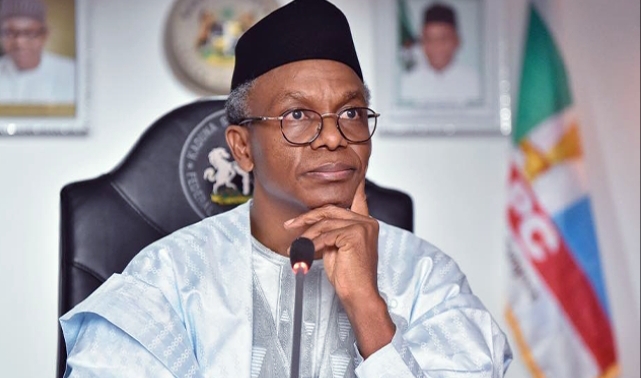Stakeholders in Kaduna State are raising growing concerns regarding the alleged unfair distribution of the $350 million World Bank loan obtained by the previous administration under former Governor Nasir El-Rufai.
The most affected by this uneven disbursement are 12 local government areas in the state, which have reportedly been neglected, despite the much-publicized Urban Renewal Road projects that were initiated by El-Rufai’s administration.
Investigations by Arewa PUNCH reveal that, even though the repayment of the $350 million loan continues, no road projects have been completed in these areas, some of which are among the state’s poorest. Affected local governments include Birnin Gwari, Giwa, Ikara, Jaba, Kagarko, Kajuru, Kauru, Kudan, Makarfi, Sanga, Soba, and Zangon Kataf.
Reports indicate that many of the projects in these regions either stalled after initial flag-off ceremonies or were completely abandoned shortly thereafter.
This has raised alarm among civil society groups and opposition lawmakers, who are now calling for an investigation into how the loan was managed and the fairness of the infrastructure distribution.
Comrade Phelimon Andrew, a transparency advocate based in Zango-Kataf, has called for a legislative audit of the Urban Renewal Programme.
“We can’t keep taking loans for political PR. The communities deserve to know where every dollar went,” he stated.
Though the World Bank loan was intended to fund El-Rufai’s ambitious plan to modernize both urban and rural infrastructure in Kaduna State, the execution has been lopsided, leaving many roads either incomplete or in a state of disrepair.
Residents have voiced frustration over the deteriorating state of these abandoned roads, which disrupt daily activities.
Musa Yakubu, an okada rider in Sabo Tasha, lamented, “The road was supposed to be finished years ago. Now, it’s a dust trap in dry seasons and a muddy mess during the rains. We spend more on repairs than on our business.”
Business owners like Gimbiya Musa, who runs a shop near the abandoned road project, also expressed disappointment.
“Since the road was dug up, we’ve seen a drastic decline in customers. Business has dropped by over 50%,” she said.
In the Zango Kataf Local Government Area, community leaders pointed out that children now play on half-graded roads, while open drains meant to manage stormwater have become dumping grounds.
Many see the incomplete roadworks as a symbol of neglect, with Fatima Bello, a school teacher, remarking, “El-Rufai gave us hope for transformation, but we were left with potholes, dust storms, and traffic jams.”
Garba Habibu, a resident of Birnin Gwari, echoed the call for accountability: “The current administration must investigate what happened to the $350 million loan and tell the people the truth.”
A senior government source confirmed that the majority of the loan’s projects benefited only Kaduna North, while areas in the South and Central zones were left with incomplete or deteriorating infrastructure.
“No project in the listed local governments reached completion, and in some areas, contractors were never even mobilized,” the source said.
With continued neglect, local leaders from the affected areas are urging the government to step in, warning that such oversight could lead to further unrest.
Efforts to reach the current administration of Governor Uba Sani for comment were unsuccessful at the time of this report.

